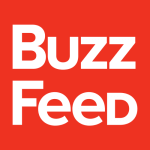 Digital and social media are transforming how government institutions, political campaigns and trade associations are communicating and marketing to their key audiences.
Digital and social media are transforming how government institutions, political campaigns and trade associations are communicating and marketing to their key audiences.
Below is a roundup of key stories in digital and public affairs for this week:
Content, Digital and Social Media
Digiday reports on how The New York Times’ T Brand Studio which was born two years ago to assist clients in the creation of native advertising (sponsored ads and content that look like actual stories in NYT) is now expanding into a full fledged agency. T Brand Studio will now assist clients in the creation of multi-media, stories and content that can be placed in publications beyond The New York Times. In pitching its new services, the Times will be competing not just with established agencies, but other publishers that are also producing content for clients such as Atlantic Media Strategies, started by Atlantic Media, publisher of news magazines such as the The National Journal.
Ad Week rants about the many ways that businesses and brands can get in trouble posting on social media regarding the 2016 Olympic Games in Rio. For those businesses that are not official sponsors of the games like Coca-Cola, McDonald’s, Visa or P&G, posting on social media regarding the Olympic Games runs legal risks. The many restrictions issued by the United States Olympic Committee (USOC) include prohibition against non-sponsors using the Olympics’ trademarked words or phrases such as Olympic, Olympian, Team USA, Go for the Gold; using terms that reference the location of the Olympics, such as the Road to Rio; and using hashtags that include Olympics trademarks such as #TeamUSA or #Rio2016. Non-sponsors are also prohibited from sharing or retweeting content from official Olympics social media accounts.
Gov 2.0 and Public Affairs
The Las Vegas Sun reports on how Las Vegas area governments and authorities such as the City of Las Vegas, Clark County and the Las Vegas Convention and Visitors Authority are turning to social media to modernize their communications and engage with citizens. The City of Las Vegas has a social media team of 4 staff members and is present on nine different social media channels including Facebook, Twitter, Instagram, Tumblr, YouTube, Snapchat, LinkedIn, Next Door and Google Plus to promote citizen engagement. Speaking of Snapchat, the Las Vegas Convention and Visitors Authority recently tapped hip hop star DJ Khaled to launch its new Snapchat account. The authority’s Snapchat launch generated more than 400,000 views and 25,000 engagements in a 48-hour period thanks to DJ Khaled.
In Associations Now, Ernie Smith reviews a report by the Interactive Advertising Bureau that found that a quarter of all internet users already block ads, which is less than anticipated. The majority of users who block ads are adult males from 18 to 34. While ad blocking on desktop computers is at 26%, ad blocking on mobile devices is lower at 15%. The IAB has been focused on combating ad blocking over the years, and is recommending that advertisers promote lighter non-invasive ads. The study found that lighter non-invasive ads online encourage ad blockers to turn off their ad blocking software. One interesting note from the study: 40% of internet users believed that they had ad blocking software turned on, but many of the users confused anti-virus and pop-up blockers with ad blocking software.
Campaigns and Elections
Business Insider reports on BuzzFeed Editor-In-Chief Ben Smith sending a memo to the outlet’s news staff to refrain from taking “partisan stands” on social media. The memo was written after a BuzzFeed reporter posted a pair of now-deleted partisan tweets to her account during a video that played before President Barack Obama’s speech at the Democratic National Convention. BuzzFeed’s ethics guide states that “reporters and editors should refrain from commenting in a partisan way about candidates or policy issues.” After acknowledging the unusual nature of this year’s Presidential election, Smith stated in his memo: “I’m writing to remind you about our policy on not taking partisan stands on social media, or in our coverage, for either side. You have colleagues covering this race intensely and an audience who should trust that you, and we, are as fair and accurate as you know we strive to be.”
These are some of the reads that matter to us for the week in digital and public affairs. What do you think? What are your favorite stories? We’d love to hear from you!